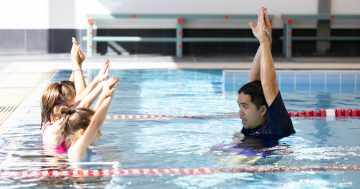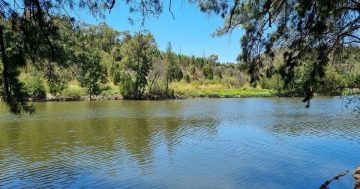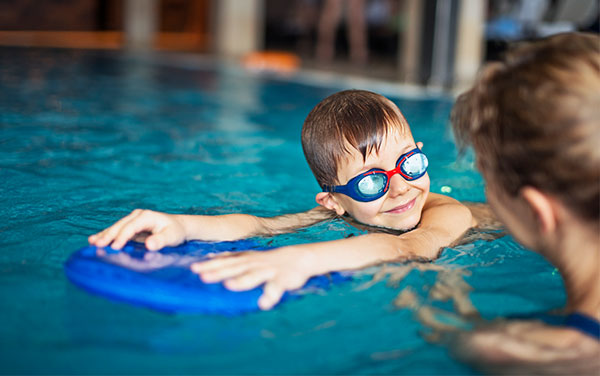
So many kids have missed out on swimming lessons due to the COVID-19 lockdown. Photo: File.
Alarm bells have been ringing regarding Canberra kids’ swimming skills well before COVID-19 and the subsequent shutdown of ACT swimming pools.
I have been advocating for many years for mandatory water safety skills for all primary and secondary school students.
It should be part of the curriculum.
In saying water safety skills, I am referring to practical training in and out of the water, as well as education about water dangers such as rips, given Canberra’s proximity to the NSW South Coast.
There are also many various swimming locations in and around the ACT, including lakes, rivers, backyard pools and community pools.
I envisage plenty of Canberrans heading to the South Coast this summer with little to no training in basic water safety survival skills.
There’s a caveat to my opinion as my family is a swimming family. We’ve spent years at various pools watching our children learn to swim and then progress to competitive swimming, including ocean swimming. We’ve witnessed the positive outcomes of the sport, socially, mentally and health wise.
My son now teaches swimming and is a qualified surf lifesaver.
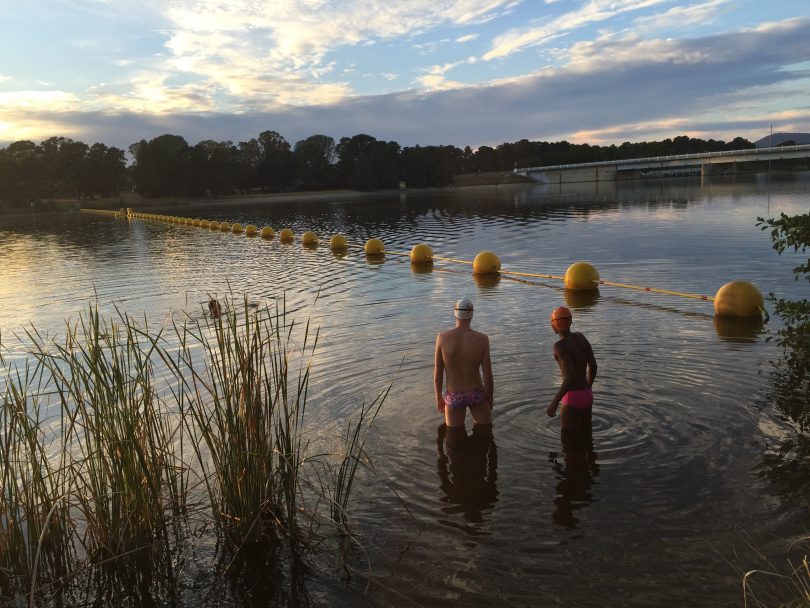
Cold water swim training in Lake Burley Griffin. Photo: Jennifer Andrew.
But I can see many families turning away from the effort required to tackle learn-to-swim programs, and the hours required for competitive training, because of the enforced break due to COVID-19.
Older children in particular might be less inclined to return following the long break from their swimming programs. Many would have been in the sport because of the social aspect, which is important, but the break in routine could result in them leaving the sport for good.
The Royal Life Saving Society and Surf Life Saving reported that during the period from 1 July, 2020, and 30 June, 2021, there were 294 drowning deaths across Australia’s coastline, inland waterways and pools.
This is a significant increase from the previous year.
The spike in drowning deaths has been attributed to several major factors: swimming in unfamiliar locations, exhaustion, and the interruptions to regular swimming during the COVID-19 pandemic.
It is speculated that COVID-19 has resulted in more people seeking out remote places to escape crowds so they swim outside patrolled beach hours, or take trips to isolated beaches, rivers or lakes, and holiday at unfamiliar locations due to travel restrictions.
The Royal Life Saving Society and Surf Life Saving further speculate that the increased drowning risk around the home is due to distractions and a lack of supervision of children around water. They put this down to complacency resulting from exhaustion due to working from home, teamed with home schooling and the frustration of spending restricted time in confined spaces.
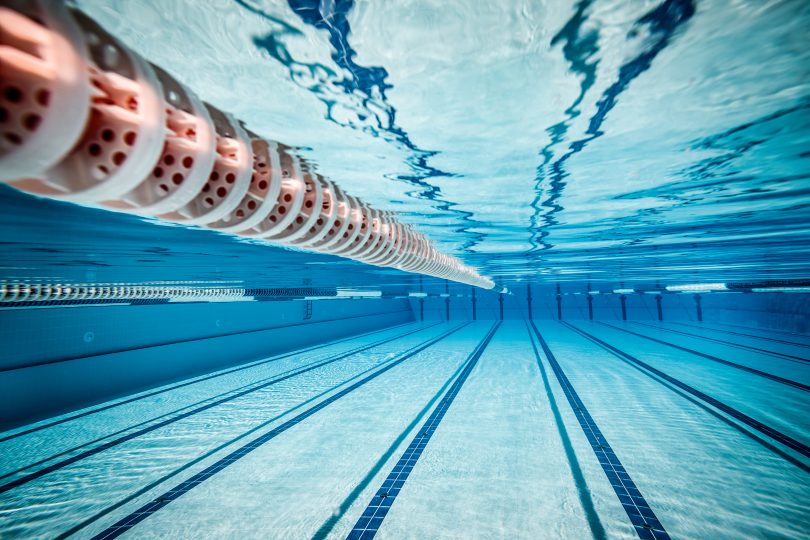
Public swimming pools are currently closed in the ACT. Photo: File.
The third COVID-19-related impact put forward by the Royal Life Saving Society and Surf Life Saving relates to a lack of swimming skills. They recognise that children are missing out on swimming lessons, adults and teenagers have reduced access to pools and are no longer swim fit, or have reduced confidence in the water.
Swim Australia has estimated a loss of 250,000 lessons each week in NSW during the COVID-19 pandemic.
The percentage rates relative to population would be just as high in Canberra with the closure of indoor pools for lengthy periods of time. This results in a reduction in skills and basic water safety awareness in the lead up to summer.
Basic water safety skills can’t be taught online.
Another worry is the national shortage of swim instructors.
In the wake of COVID-19, many will be lost to the swimming industry forever. And although every attempt has been made by the Royal Life Saving Society to keep swim teaching qualifications up to date during this period, the break in routine and the lack of work associated with swim instructing is likely to draw people away from the industry.
If Canberra and region can maintain its level of swim instructors, hopefully swim programs will be inundated with enthusiastic participants once they recommence. And when schools return following the COVID-19 shutdown, the ACT Government should be treating water safety skills in schools as a priority in order to improve skill levels for all children.
Summer is almost here, and time is running out.












